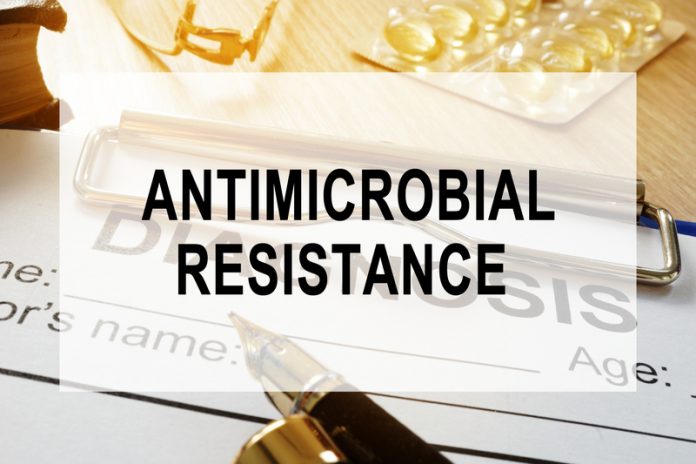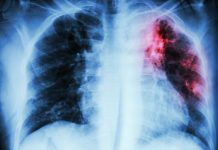Mecky Isaac Matee, Leader of the SACIDS AMR CoP profiles the excellent antimicrobial resistance (AMR) research taking place at the Southern Africa Centre for Infectious Disease Surveillance (SACIDS)
Antimicrobial research activities in the Southern Africa Centre for Infectious Disease Surveillance (SACIDS) is led by the antimicrobial resistance (AMR) Community of Practice (AMR CoP). This CoP was formed five years ago to address the burden of AMR in the southern African region and therefore, contributes to the global effort.
We set out to address the AMR problem from the One Health perspective in humans, animals and the environment and, therefore, our research team combines expertise and experience from the three sectors. We realised that although AMR is a global issue, in low-income countries, it is compounded by (i) a lack of access to appropriate antimicrobial therapy, (ii) weak of regulation in the use of antibiotics for humans and animals, (iii) weak AMR surveillance and resistance levels, (iv) a lack of updated antibiotic use and treatment guidelines, (v) a lack of continuing medical and veterinary education on antibiotic use for prescribers, (vi) a weak regulatory framework for the use of antibiotics in animal production and aquaculture, (vii) a high degree of drugs abuse by livestock keepers through; (viii) a lack of basic knowledge on the concept of antibiotic resistance among livestock keepers (ix) unregulated disposal of industrial waste and finally, (x) self-medication using antimicrobials.
What is its composition?
The SACIDS AMR CoP, led by Professor Mecky Matee of the Muhimbili University of Health and Allied Sciences (MUHAS) also includes participating scientists from MUHAS, the Catholic University of Health and Allied Sciences, the Sokoine University of Agriculture, the National Institute for Medical Research, the Tanzania Veterinary Laboratory Agency, the Tanzania Wildlife Research Institute and the Kilimanjaro Clinical Research Institute.
Regionally, SACIDS member institutions are the University of Zambia, the University of Kinshasa, the Democratic Republic of Congo and the University of Eduardo Mondlane in Mozambique. SACIDS works in partnership with the London School of Hygiene and Tropical Medicine, the London International Development Council, the Royal Veterinary College, the Giessen University in Germany, the University of Bergen in Norway, the University of Virginia, U.S and the American Society of Microbiology.
How do we operate?
In AMR, SACIDS utilises a multi-disciplinary and multi-sectoral OH approach that provides evidence-based information and data to improve practices and inform decision-making processes. The core activities of the AMR CoP include training, research and the provision of technical expertise in different disciplines, namely clinical microbiology, molecular biology, disease surveillance, One Health analytical epidemiology and One Health molecular biology.
The CoP advocates a 2-Level OH approach to addressing AMR. Level 1 consists of phenotypic screening and surveys by national public health and veterinary laboratories. Level 2 consists of genomic surveillance by the SACIDS-Africa Centre of Excellence partnership and/or other specialised laboratories.
SACIDS has also designed and deployed digital disease surveillance tool packages under the AfyaData platform, utilising a participatory OH approach. AfyaData will be used to support surveillance on AMU and AMR at community and primary health care levels and enhance data linkage to WHONET.
What do we aim to achieve?
SACIDS AMR CoP, working with other stakeholders, is aiming to attain a holistic understanding of the factors and nature of spread and persistence of AMR to develop appropriate intervention models; the role of livestock production and animal health systems in the evolution and spread of AMR in Africa; the socio-cultural and economic determinants of AMR in Africa and role of food chains in spread of AMR in the southern African region. The overall expected outcome is a cost-effective, evidence-based policy that is relevant in health and agricultural systems in the region that will be adopted by policymakers to minimise the AMR problem and serve as a model for resource-limited countries.
What is our working hypothesis?
Our working hypothesis is that “human and animal activities and ecosystems complexity exacerbate the transmission of bacterial zoonoses, including the emergence, spread and persistence of antimicrobial resistance.
Our research approach to addressing AMR
Our AMR research is centred on examining the genomic epidemiology of AMR in the context of health systems and the analysis of the socio-economic and policy analysis approaches to define the scale and the impact of AMR in Tanzania and neighbouring countries and to define intervention policy solution that is locally relevant and feasible.
Training and research strategies
The SACIDS training and research programme provides evidence-based action for AMR in Eastern and Southern Africa. Currently, one postdoc and seven PhDs are working on various aspects of AMR in three compartments i.e. animal, human and the environment, i) including Genomic epidemiology of ESBL-producing Escherichia coli in hospital and environmental settings in Dar es Salaam, Tanzania and ii) Genomic epidemiology of AMR in short-cycle food animals (poultry, pigs and fish) – (driven by AMR surveillance in animals, aquaculture and environment).
Provision of technical expertise and government engagement
Over the years, SACIDS has provided support to different national technical working groups of the National One Health Coordination Desk under the Tanzania Prime Minister’s Office, the Ministry of Health, the Ministry of Livestock and Fisheries in addressing the burden of AMR in the country. SACIDS has also been involved in the formation of the Multi-Sectoral Coordination Committee, AMR technical working groups, the development of national action plan for AMR and in the development of guidelines and implementation of strategies for AMR. The established relationship provides unique opportunities for SACIDS AMR CoP to work, according to the national strategies, requirements and plans of the country.
Beneficiaries of the SACIDS AMR research
We target populations of AMR policy; healthcare professionals, professionals working in the animal sector, patients and community groups. Academics, including policy researchers and those focusing on AMR/One Health approaches, will also benefit from the research findings, as will international policy organisations that seek to shape policy responses to AMR, including the World Health Organization (WHO), the Food and Agriculture Organization of the United Nations and World Organization of Animal Health.
The recently established Tanzania’s One Health Platform established through the Prime Minister’s Office is a specific group that will directly benefit from the research findings as they seek to identify how best to implement One Health principles with respect to controlling the spread of AMR. Private sector groups that continue to face impacts of AMR on business interests are also likely to benefit from this research.
Please note: this is a commercial profile
Mecky Isaac Matee, MD,PhD
Professor of Clinical Microbiology and Leader, Bacterial Zoonoses and Antimicrobial Resistance CoP, SACIDS
Department of Microbiology and Immunology, School of Medicine,
The Muhimbili University of Health and Allied Sciences, Dar es Salaam, Tanzania











